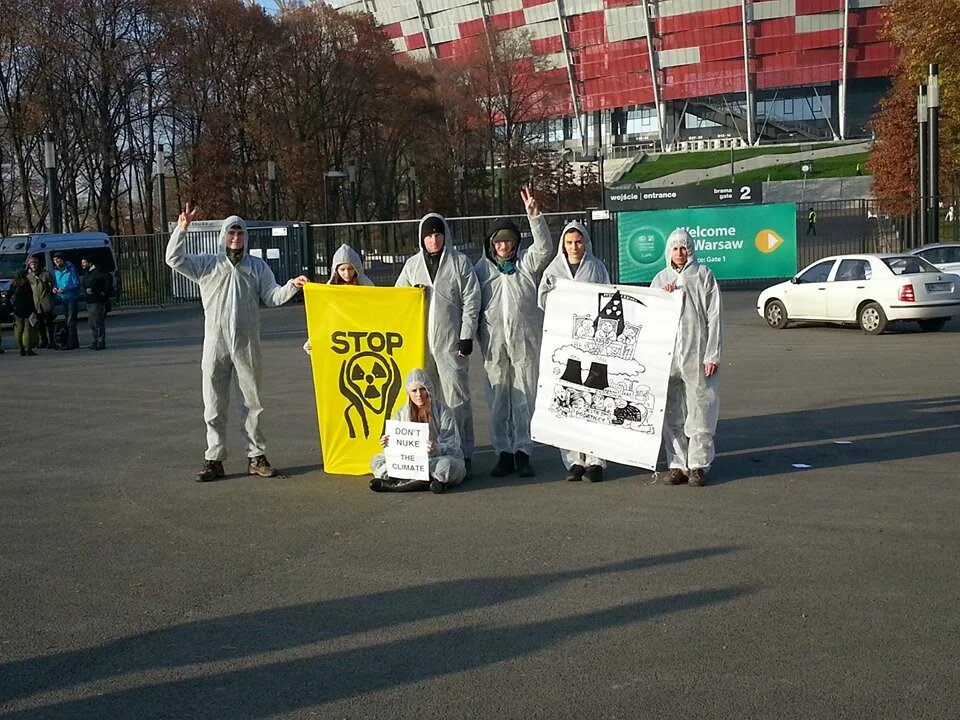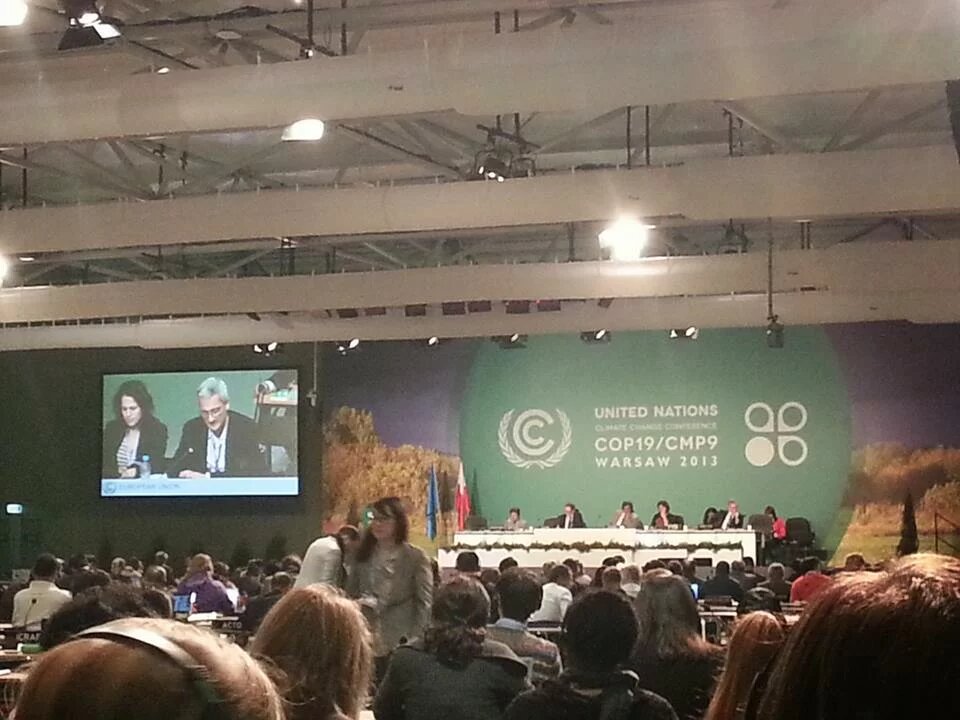

By Hussein Mohsen Kiswani
The Conference of Parties (COP19) of the United Nations Framework Convention of Climate Change (UNFCCC) has started in Warsaw in the Republic of Poland, accompanied by several expectations in terms of funding. It was even thought that it would be the 'money conference', in addition to hopes pertaining to finally be able to come out with a mechanism for loss and damage. But after the passing of few days, close observers can now see that no progress has been achieved on the front of ensuring funds, or on the front of the need to endow the climate funds by the negotiating countries. In fact, the opposite took place: countries have started to weasel around their funding pledges of last year's COP meeting in Doha. As we stand today, it's hard to reach a concurrence on the form and substance of the agreement supposed to be launched in Paris in 2015; the agreement that is supposed to be binding for all countries in order to mitigate their greenhouse emissions starting 2020. The need for incoming funds has become a necessity since the current climate funds are about to end. Incoming financing is also important to revive the funds and save them from stagnancy, as in the case of the Adaptation Fund, and also in order to perk up emerging funds such as the Green Climate Fund (GCF). The GCF is developing towards a clearer vision of its mandate but unfortunately without the appropriate financing enabling it to execute its plans. The economic and political situations in many countries are shadowing the COP results, namely the hesitation to give the aspired financial support, especially between 2012 and 2020 when the new agreement (Paris) is supposed to take effect.
Last year's conference in Doha gave us some temporary solutions, which were supposed to be foundations for Warsaw's conference this year. Whether we like it or not, the agreement on climate change that should have been achieved years ago is still being delayed. We also shouldn’t forget that the agreed-upon cutbacks for the second phase (extension period) of Kyoto do not exceed 15% of the world emissions. If we take into consideration the dire need to instantly start mitigating emissions, and keep in mind the results of the Intergovernmental Panel on Climate Change (IPCC) report of September 2013 asserting the manmade effects on the climate change, we could conclude that we should reduce emissions by more that 15%. The reports of some international organizations and bodies, such as UNEP, assert that humanity should cut back around 30% of the emissions by 2030, followed by a reduction of 80% by 2050 if we want to fix the augmentation of the earth temperature by an average of two degrees or less. Instead we see the withdrawal of many of the developed countries such as Canada from the second phase of Kyoto and the ongoing obstinacy of others, along with the regressed ambitions of some countries as a result of their internal economic situations. As an example, Japan is failing to keep its promises of emission reductions and instead is demanding to be allowed an increase of emissions by almost 3%! With the absence of a real leadership within the EU, whose members stood far apart from each other, and in light of the weak presidency of Poland in these deliberations (Poland was clearly not interested in achieving important agreements in Warsaw), it would be very hard to achieve any progress in negotiations. The result was mere resolutions and humble promises, of which we name:
- Establishing the so-called 'Warsaw International Mechanism for Loss and Damage', under the umbrella of Cancun Framework for Adaptation, with the main aim of compensating for loss and damage caused by extreme and long term climate change effects.
- Forming the Warsaw Framework for Reducing Emissions from Deforestation and Forest Degradation (REDD+), with the aim of moving forward in finding support and coordination mechanism by the developed countries to help developing countries reduce greenhouse gas emissions from deforestation and the degradation of forests.
- Attempting to make governments provide more clarity on mobilizing finance meant to support developing countries’ actions to curb emissions and adapt to climate change. This includes requesting developed countries to prepare biennial submissions on their updated strategies and approaches for scaling up finance between 2014 and 2020, when finance is supposed to reach 100 billion dollars.
- The Warsaw meeting also resulted in concrete announcements of forthcoming contributions of public climate finance to support developing nations’ actions, including from Norway, the UK, EU, US, Republic of Korea, Japan, Sweden, Germany, and Finland. The Warsaw Framework for REDD+ is backed by pledges of 280 million dollars financing from the US, the UK, and Norway.
In my opinion, COP19 achieved humble results, and any observer of the course of previous COP's negotiations would well know that hindering the negotiations in any meeting would definitely affect the negotiations of the following meetings. This is exactly what I fear. These times we are in great need to stand hand in hand in order to face the climate challenge of the 21st century.
Heinrich-Böll-Stiftung Palestine/Jordan supported the participation of two environmental activists and experts from Palestine and Jordan in the COP19 in Warsaw. The views expressed in these articles are those of the authors and do not reflect the official opinion of the Heinrich-Böll-Stiftung.